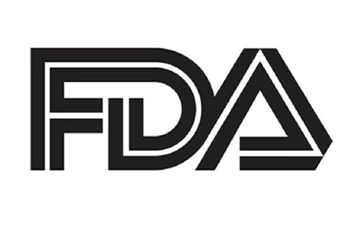
 您当前的位置:Our Services>
Certification Services>
North America
您当前的位置:Our Services>
Certification Services>
North America
Our Services


+86-769-83085888
+86 135 5499 1454


US FDA Certification
Introduction to FDA
FDA (Food and Drug Administration) certification is a certificate of conformity for food or drugs issued by the U.S. Food and Drug Administration. Due to its scientific nature and rigor, this certification has become a world-recognized standard. FDA-approved drugs can be sold not only in the United States, but also in most countries and regions in the world. FDA is the abbreviation of U.S. Food and Drug Administration (U.S. Food and Drug Administration). It is an international medical review authority, authorized by the U.S. Congress, the federal government, and the highest law enforcement agency specializing in food and drug management.

The FDA is a monitoring agency of government health regulation composed of professionals such as doctors, lawyers, microbiologists, pharmacologists, chemists, and statisticians dedicated to protecting, promoting, and enhancing the nation's health. Foods, drugs, cosmetics and medical devices certified by the FDA are safe and effective for the human body. In nearly 100 countries such as the United States, only FDA-approved materials, devices and technologies can be used for commercial clinical applications.
FDA Classification
1. FDA testing of food materials
Food contact materials (Food Contact Materials, abbreviated as FCM) refer to the materials that products come into contact with food in normal use. Because of its direct contact with food, it is called the "intimate underwear" of food, and its safety directly affects the safety of food, which is also the most critical control point for enterprises. Products involved in food contact materials include food packaging, tableware, kitchen utensils, food processing machinery and kitchen appliances, etc. Food contact materials include: plastics, resins, rubber, silicone, metals, alloys, electroplating, paper, cardboard, glass, ceramics, Enamels, colorants, printing coatings, inks, etc.
Food contact materials and products may affect the smell, taste and color of food during contact with food, and may release a certain amount of toxic chemical components such as heavy metals and toxic additives. These chemical components will migrate into the food. Ingested by the human body, endangering human health.
2. Food FDA testing
3. FDA testing of medical devices
4. Cosmetic FDA testing
5. FDA testing of drugs and biological products
Note: CCICT's business scope is: FDA testing of food materials + FDA testing of laser instruments.
About FDA Certificate
The FDA registration actually adopts the good faith declaration model, that is: you are responsible for your products complying with relevant standards and safety requirements, and register them on the US federal website.
Does FDA registration have a certificate: In fact, all actions of FDA registration are done online, and there is no certificate. So what is the FDA certificate circulating on the market? In fact, it is a declarative document issued by the agency itself, proving that the product has been registered with the FDA.
The difference between FDA certification, FDA testing and FDA registration
• It can be understood in this way that FDA testing is generally aimed at these types of products: 1. Class II and III medical devices; 2. Cosmetics, daily necessities;
3. Food contact materials;
• FDA registration is generally divided into: 1. Cosmetics; 2. LED and laser products; 3. Medical devices; 4. Food; 5. Drugs;
• FDA certification is the general term for FDA testing and FDA registration, both of which can be called FDA certification, and FDA certification is just a colloquial term.
Other
• Which agency issued the FDA certificate?
There is no certificate for FDA registration. After the product is registered with the FDA, a registration number will be obtained. The FDA will give the applicant a reply letter (with the signature of the FDA chief executive), but there is no FDA certificate.
• Does FDA require designated accredited laboratory testing?
FDA is an enforcement agency, not a service agency. If someone says they are certified laboratories under the FDA, then he is at least misleading consumers, because the FDA has neither public service certification agencies and laboratories, nor so-called "designated laboratories". The FDA, as a federal law enforcement agency, cannot do this kind of thing as both a referee and an athlete. The FDA will only recognize the GMP quality of the service testing laboratories, and issue certificates of conformity to those who are qualified, but will not "designate" or recommend a specific one or a few to the public.
• Does FDA registration necessarily require a US agent?
Yes, Chinese applicants must designate a U.S. citizen (company/society) as their agent during FDA registration, who is responsible for process services located in the United States and is the medium between FDA and the applicant.